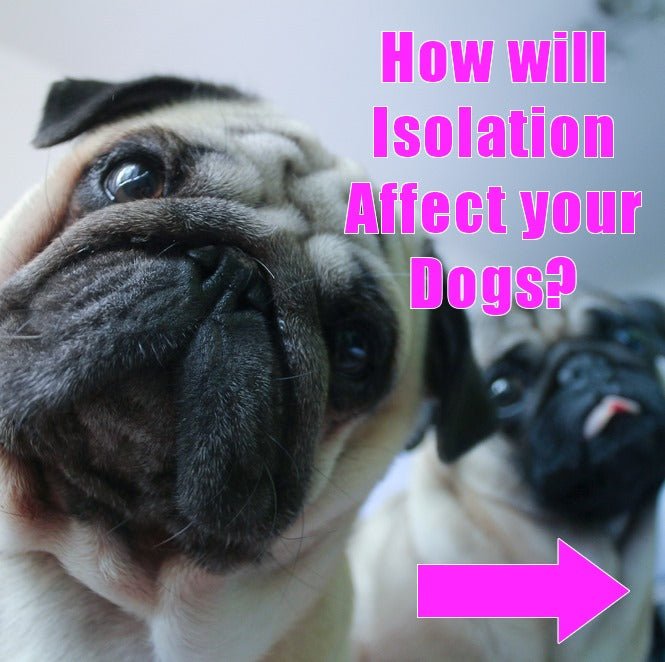I was really hoping NOT to have to write this post, but as I sit here in the same state of shock and confusion as I'm sure most of you are in, it's become painfully obvious that an end to this is not coming in a mere week.... We know we will be avoiding most normal activity for at least another week, and likely more. So, how will this affect your dog?
Here are a few things to think about.
Most of us work away from home, so If you are not usually home through the day, this will be a drastic difference for your dog. Having you around 24/7 may feel like they've scored, but it has some negatives as well.
Overtired or Overstimulated Dogs
Dogs who are used to sleeping solidly for the 8 - 12 hours you are absent from the home will undoubtedly be sleeping less. As we all know, the difference between sleep and lack of sleep is immense. Your dog may be feeling some confusion and frustration from being overtired.
Dogs who are used to a quiet house for those 8 - 12 hours may be getting more stimulation than they are used to. Often dogs will self-regulate and find a quiet corner to gain rest and relaxation, but dogs who have a lack of ability to turn off, either due to temperament or lack of training, could wind up feeling overstimulated. This will be exacerbated by the amount of action in the home. Are their kids? Kids with cabin fever as well? Multiple people and pets?
You may see your dog react differently than they normally do, they may be less tolerant of things that are normally not an issue and they might get into more mischief than you are used to.
What Will Help?
- Keep Rituals and Routines in Place
- Try to keep meal and potty times to their usual. If you typically walk your dog before work and you still feel it is safe to do so, try to keep that ritual happening. Routine creates comfort for us and our dogs. Experiencing familiar events will help them adjust to their new happenings.
If you normally crate your dog while you work, be sure to crate them while you work from home as well. Imagine the culture-shock they'll go through when normal life returns and they find themselves isolated after having had constant companionship for weeks. Be careful not to inadvertently set them up for that shock!
Offer Quiet Times for the WHOLE House
There are a couple of ways you can do this. I like to have controlled measures in place so the entire household can benefit from a nice chunk of quite time in their day. As an example, you could implement a quiet rule from 1 - 2 pm. This could be TV time, nap time, book time, colouring time, etc. Figure out what works in your household and strive to make it happen every day.
Offer Quiet Times for the Dog
If you are not able to find a collective time for quiet in the entire house, your dog's crate or similar will help them relax amongst the busy. Find a quiet, out of the way place to tuck them. Another room is likely your best bet and you may want to put on a radio to drown out noise in the household and allow the dog to recharge.
What About Young Dogs?
These dogs will have the toughest times with these adjustments. Be sure to keep lots of routine and structure in your day with your dog. Try to break their day into chunks of management (crating and downtime) and training (teaching activities), with a good dose of play mixed in!
Use this time to build a better bond with your youngster and proof through some of the skills you've taught!
Be well everyone!
~Shannon

